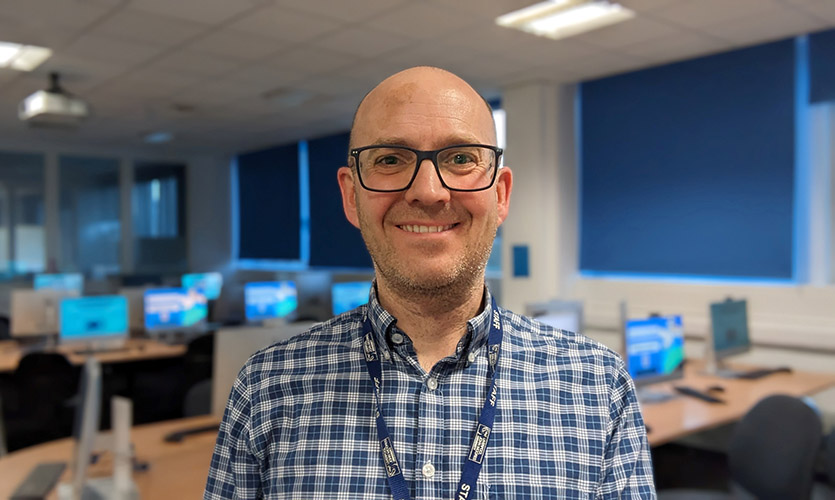Dr Will Swaney

Will won the Excellence in Digital Education Award at our Teaching Excellence Awards held in our Bicentenary year, celebrating how he has been able to use technology to transform student learning.
Will is a senior lecturer in epigenetics at our School of Biological and Environmental Sciences within the Faculty of Science. He studied zoology at the University of Cambridge but wasn’t sure he wanted to pursue a career in science. In fact, after graduation, he worked in different industries including TV production, fashion and web development.
However, nothing quite captured his passion and interest as the experience of undertaking independent research during the final year of his undergraduate studies. So, he began to look for opportunities to go back into biology research. He was offered a PhD place at Cambridge studying behavioural neuroscience and went on to work in America, Canada and the Netherlands before joining LJMU as a lecturer in 2014.
“I'd been working as a post-doctoral researcher overseas for a number of years. Merseyside was an attractive place to move to with a young family, and LJMU seemed like a great fit.
“I have fantastic colleagues, from my fellow academics to all the technical, admin and support staff I work with on a daily basis in different parts of the university.”
“I really enjoy teaching our students: they are a diverse, varied and stimulating bunch, and it's very fulfilling to guide them in discovering the captivating aspects of science which they may have previously considered mundane or overlooked.”
– Dr Will Swaney

Will believes that embedding digital education is essential to keeping curricula current and that this really maximises student outcomes. He uses technology and digital tools to equip students with the transferable skills needed for future success in an ever-changing world. He uses model simulations, encourages students to participate in data generation and analysis and makes use of weekly online micro-assessments.
He has championed top-to-bottom changes in the teaching of statistical analysis across the school’s subjects and students have embraced these, with high levels of achievement and satisfaction despite the supposed challenges of learning statistics. Both students and staff have praised Will's contributions across the school, and he has achieved consistent high evaluations for his teaching and the modules he leads.
He employs a range of digital strategies to facilitate learning, including model simulations, where students can visualise complex concepts, student participation in data generation and analysis, and weekly online micro-assessments. He believes these methods enhance student engagement as well as provide immediate feedback, aiding in a better understanding of the material.
On winning the Digital Education Award, Will said: “I have put a lot of effort into this side of my teaching over the last few years, helping to develop curricula and teaching that integrates traditional instruction with interactive digital learning, and it's really nice to get recognition for this.
“I'm part of a really good team of Biological and Environmental Sciences (BES) staff who have worked really hard over recent years to develop our digital education. I might be the named recipient of the award, but there are many of us who've been working on this side of teaching in BES for some time now.”
According to Will, students are entering professional worlds where digital fluency is vital, therefore digital education is essential.
“We can enhance our teaching by using impactful digital tools to explain concepts and knowledge in a more accessible fashion than using traditional methods alone.”
